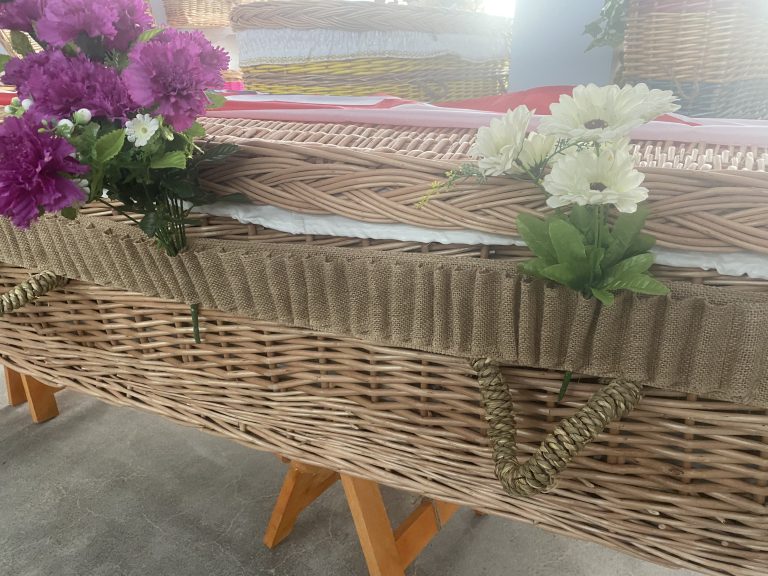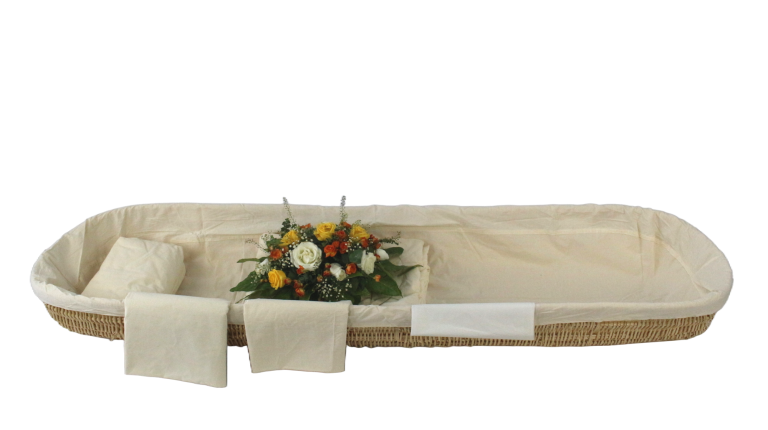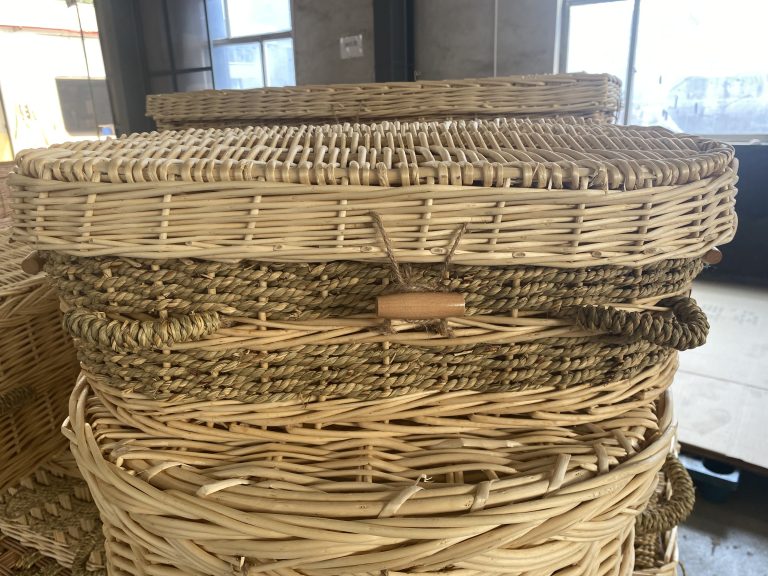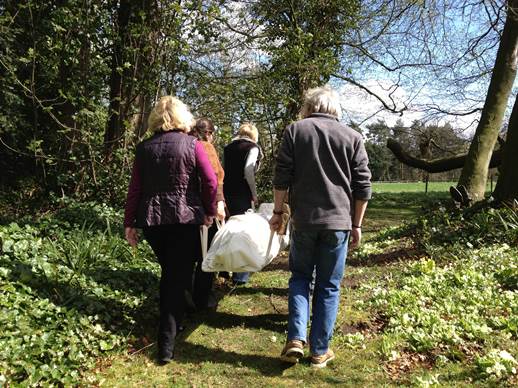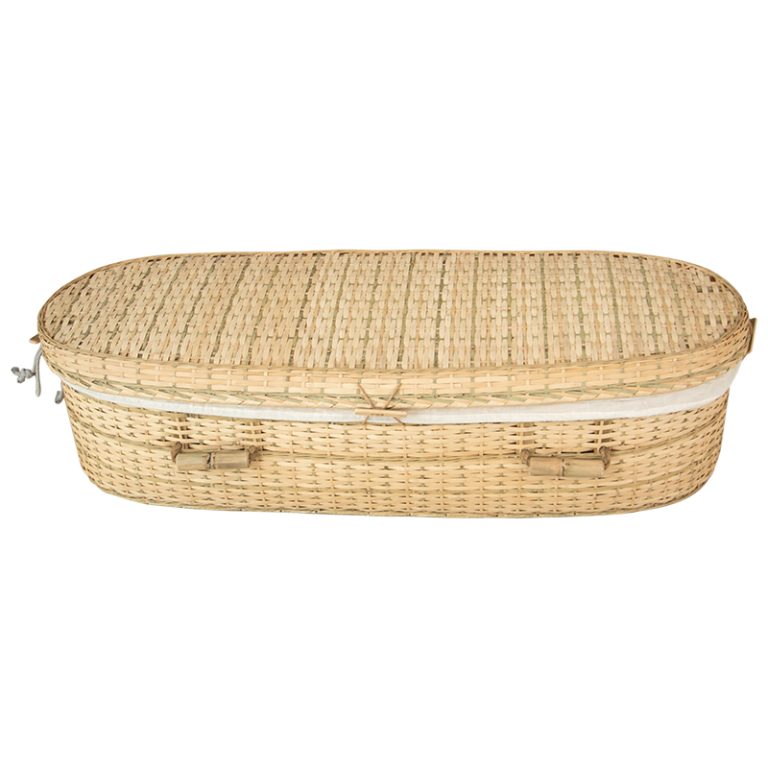In a world grappling with climate crises, even the final act of saying goodbye is undergoing a revolutionary transformation. At the heart of this shift lies the woven coffin—a biodegradable, elegant alternative to traditional burial practices. Born from centuries-old craftsmanship in China’s Shandong Province and reimagined for a global audience, these coffins embody a philosophy where death becomes a whisper, not a burden, to the planet.
1. Roots in Tradition: Shandong’s Green Legacy
In Linyi, Shandong, where willow trees thrive along the Yellow River, artisans have honed the art of woven coffins for generations. The region’s Qingyun Willow—a species cultivated for over 800 years—provides the raw material. Unlike hardwood coffins that contribute to deforestation, these willows grow rapidly (up to 1.5 meters annually) and thrive on marginal lands, requiring no chemical fertilizers.
Local workshops, such as Shandong Phoenixnestcoffins Co., blend tradition with innovation. Their coffins are handwoven using techniques passed down since the Ming Dynasty, but modernized with precision engineering to meet international safety standards. Each coffin features a reinforced bamboo base and unbleached linen linings, ensuring durability while remaining 100% biodegradable.
This synergy of heritage and sustainability has turned Linyi into a global hub. In 2024, the city exported over 12,000 woven coffins to Europe, North America, and Japan, capturing 35% of the world’s eco-coffin market.
2. Eco-Conscious Elegance: Designing for Decomposition
Woven coffins are more than aesthetic choices—they are ecological statements. Made from willow, rattan, or bamboo, these materials decompose naturally within 6–12 months, enriching soil with organic matter. Studies show a single willow coffin sequesters 18 kg of CO₂ during its lifecycle, offsetting emissions equivalent to a 100-km car journey.
In the UK, brands like Sussex-based Woven Farewell Coffins have gained acclaim for their teardrop-shaped designs. Reinforced with organic hemp ropes and certified by the Funeral Furnishing Manufacturers’ Association (FFMA), these coffins support up to 190 kg—proving strength need not sacrifice sustainability. Meanwhile, Indonesian makers use rattan’s natural flexibility to create lightweight, water-resistant coffins ideal for tropical climates.
3. Global Synergy: From Graves to Green Movements
The ripple effect of Shandong’s innovation spans continents:
• Europe: The Netherlands’ EcoCoffin Collective partners with Linyi Roconly funeral supplies factories to produce hybrid coffins combining willow with recycled ocean plastics, sold under the “Sea2Soil” initiative.
• Africa: NGOs deploy Linyi’s low-cost bamboo coffins in Kenya’s arid regions, reducing deforestation and supporting community-led reforestation.
• Japan: After the 2011 tsunami, Shandong-style willow coffins were used in tsunami-affected areas to protect coastal ecosystems from embalming chemicals.
This global adoption underscores a universal truth: death rituals can align with life’s cycles. As the UN’s Circular Economy Action Plan highlights, biodegradable coffins like those from Shandong could reduce global funeral-related carbon emissions by 12% by 2030.
4. Beyond the Coffin: A Holistic Vision
Shandong’s workshops are pioneering beyond materials. Linyi Green Burial Initiative now offers “woven memorial ecosystems”:
• Coffins embedded with seed paper tags that sprout wildflowers post-burial.
• Modular burial pods lined with mycelium, accelerating decomposition while nurturing tree saplings.
• Carbon-offset programs where 5% of profits fund reforestation projects in the Amazon and Yellow River Basin.
These innovations resonate with younger generations. In Shanghai, millennials host “green farewell ceremonies” where ashes are mixed with willow seeds and planted as memorial trees—a practice rooted in Shandong’s ancient tree-burial customs.
5. Conclusion: Weaving Hope from Loss
The woven coffin is more than a product—it’s a manifesto. Born from Shandong’s willow groves and nurtured by global collaboration, it transforms death into a regenerative act. As climate anxieties mount, these coffins remind us that even in endings, there is renewal.
“A tree falls, but its roots give life to new growth.”
—Linyi Proverb
By choosing a woven farewell, we honor both our ancestors and the Earth—a final gesture of gratitude that ensures our departure leaves no trace, only renewal. 🌿
Roconly Funeral Supplies Co.,Ltd.
Whatsapp: +86-18265103836 (Whatsapp & Wechat & Tel)
Email: jason@roconly.com
#roconlycoffins#everecoffin#willowcoffins#bamboocoffins#burialflowerbands #naturalfuneral#flowerbands#woodcross#shrouds#cremation#greenfuneral #craftsmanship #chinafactory
We are a factory supporting eco friendly green funeral(natural willow coffins\bamboo caskets and so on) .. for detail please contact us www.roconly.com;
Whatsapp: +86-18265103836 (Whatsapp & Wechat & Tel)
Email: jason@roconly.com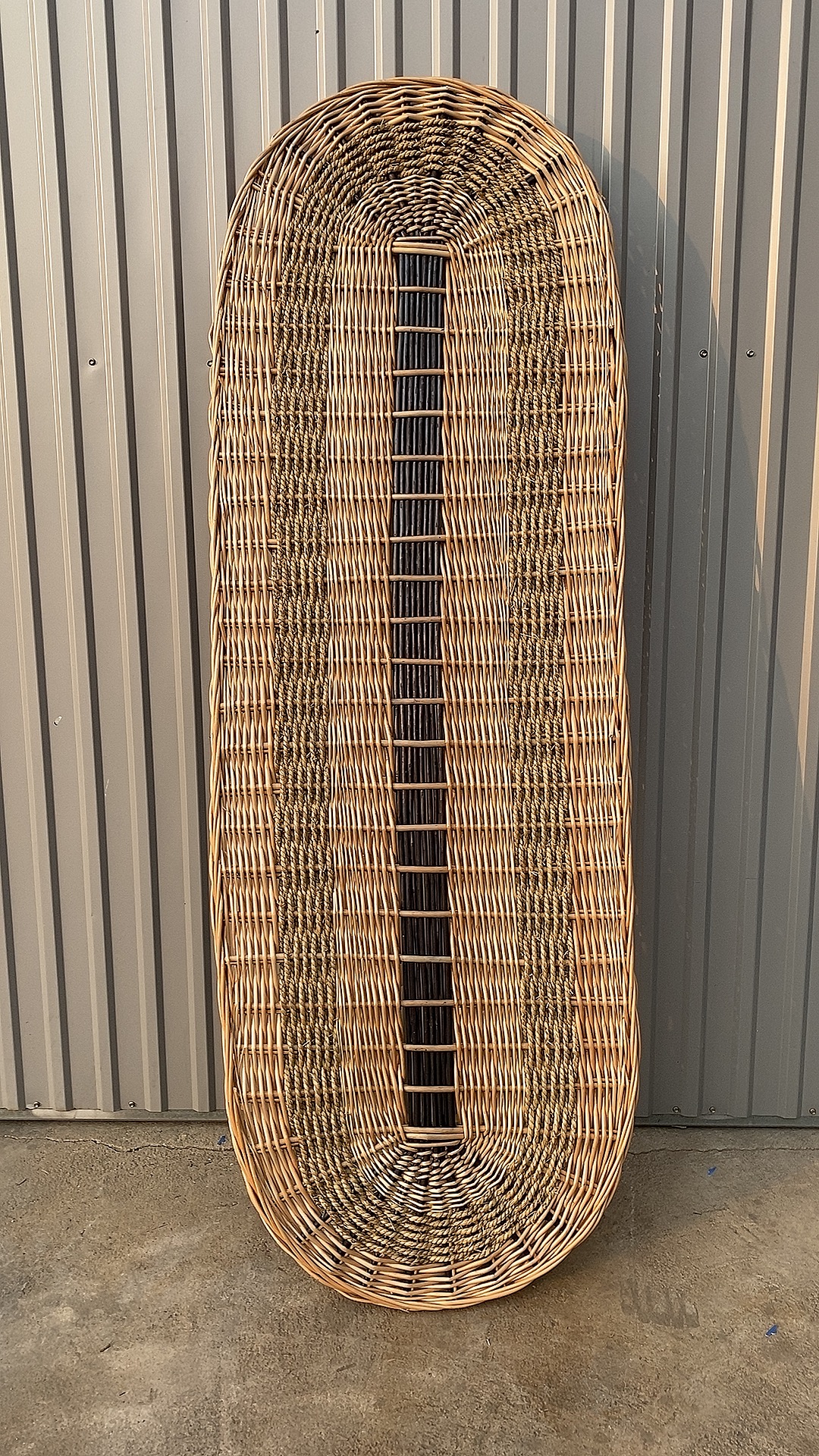 Our woven coffin may be beautifully handmade but they are not built to last#roconlycoffins #everecoffin #naturalfuneral #flowerbands #greenfuneral #natrualburial @everyone@followers
Our woven coffin may be beautifully handmade but they are not built to last#roconlycoffins #everecoffin #naturalfuneral #flowerbands #greenfuneral #natrualburial @everyone@followers
